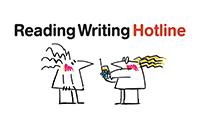Ready to write effectively? #
- Think about your readers
Is the reading and writing you are expecting reasonable?
If you can’t find out about the literacy levels of your readers, you can assume that 43% of them will find everyday reading and writing challenging, and 53% will find numeracy difficult. - Review your communications
Do you need to do an audit of what you expect people to read and write - Redesign your communications
For written texts, use plain language and reader-friendly layout. Check that the location is easy to find.
Can you reimagine your messaging style to give your information in a different way?
Use the case studies in this guide for inspiration.
Check the links we’ve provided for more details. - Have a go
Get feedback from your readers, your staff, or your customers to check what works. - Contact us at the Reading Writing Hotline
We’d love to hear about your progress and include your example in our next case studies!
Thank you #
Thank you to the following organisations for generously sharing their time and expertise:
- 26TEN Tasmania Strategy
- AI Group Centre for Education and Training
- Australian Council for Adult Literacy (ACAL)
- Australian Public Service Commission (APSC)
- Australian Taxation Office (ATO)
- Behavioural Insights Unit – NSW Government
- Central Coast Community Legal Centre
- Centre for Culture, Ethnicity & Health
- Coast Community News
- Council for Intellectual Disability
- Fair Work Commission
- Foundation and Transition Programs Branch, Australian Government Department of Employment and Workplace Relations
- NPS MedicineWise
- Reading Writing Hotline participants Maree, Tom and Mike.
- SBS TV
- South Eastern Sydney Local Health District, Deakin University and University of Melbourne
- State Library NSW
- Sydney Health Literacy Lab
- Tasmanian Council of Social Service Inc
- The Western Australian Training Accreditation Council (TAC)
And thank you to NPS MedicineWise consumer story participants, Makere, Nev and Shelle, and to Mike, Maree and Tom for sharing their learner stories.
References #
- NSW Government Behavioural Insights Unit (2022), Behavioural Insights Unit, Behavioural Insights Unit | NSW Government, accessed 22 August, 2022.
- Australian Bureau of Statistics (2013), Programme for the International Assessment of Adult Competencies, Australia, Programme for the International Assessment of Adult Competencies, Australia, 2011 – 2012 | Australian Bureau of Statistics (abs.gov.au), accessed 22 August, 2022.
- Department of Employment and Workplace Relations (2021), Discussion Paper – Delivery of the SEE Program 2023, Resources | Department of Education, Skills and Employment (dese.gov.au), accessed 22 August, 2022.
- NPS Medicinewise (2022), National Medicines Symposium Toolkit, National Medicines Symposium Toolkit (msecnd.net), accessed 22 August, 2022.
- Australian Council for Adult Literacy (ACAL) (2022), Who wants to know about adult literacy?: report into the findings of the ACAL survey 2021 2022, Who wants to know about adult literacy?: report into the findings of the ACAL survey 2021-2022 | VOCEDplus, the international tertiary education and research database, accessed 22 August, 2022.
- The Australian Industry Group (2018), Survey report Workforce Development Needs, Skilling: A national imperative, 6 Survey_Report_WFDNeeds_Skilling_Sept2018.pdf (aigroup.com.au), accessed 22 August, 2022.
- Australian Council for Adult Literacy (ACAL) (2022), President report July 2022 newsletter, ACAL July eNews – Reviews, research & resources (mailchi.mp), accessed 22 August, 2022. 8
- 26TEN Tasmania: Tasmania’s strategy for adult literacy and numeracy 2016-2025 Home (26ten.tas.gov.au), accessed 22 August, 2022.
- Ayre, J., Muscat, D., Bonner, C., Mouwad, D., Dalmazzo, J., Harrison., E., Aslani, P., Dunn, A., & McCaffery K. (2021), Sydney Health Literacy Lab (SHLL) Health Literacy Editor, SHeLL editor technical notes — Sydney Health Literacy Lab, accessed 22 August, 2022.
- Reading Writing Hotline & NSW Council of Social Service (NCOSS) (2020), 2020 Helping Clients Fill in Forms Report. Social Equity Works, https://readingwritinghotline.edu.au/ wp content/uploads/2020/11/Helping-Clients-Fill-inForms- Research-2020.pdf, accessed 22 August, 2022.
- Office of the E-Safety Commissioner (2018), Understanding the digital behaviour of older Australians. Summary of national survey and quantitative research, Understanding-digital-behaviours-older-Australians-summary-report-2018.pdf (esafety.gov.au), accessed 22 August, 2022.
- APSC (Australian Public Service Commission) (n.d.) Australian Government Style Manual, stylemanual.gov.au, accessed 22 August, 2022.
- South Eastern Sydney Local Health District, Deakin University and University of Melbourne (2018), Teach-back.org., Teach-back – The Online Learning Module (teachback.org), accessed 22 August, 2022.
Index of case studies and research #
Case studies
26TEN: Meet some real people who share their stories
The Reading Writing Hotline: What are the challenges adults can face?
NPS Medicinewise: Listening to consumers
The Western Australian Training Accreditation Council (TAC): Talking to stakeholders
The Sydney Health Literacy lab: SHeLL Editor
NPS Medicinewise: Asking customers and staff for feedback and using tools to audit messaging
NSW Behavioural Insights Unit: The Sludge Guides
NSW Behavioural Insights Unit: The Sludge-a-thon
NPS Medicinewise: Listening to consumers
Council for Intellectual Disability: NSW Health explains technical terms
Centre for Culture, Ethnicity & Health: Drop the Jargon Day
The Fair Work Commission: Re-drafting awards in plain language
The Law and Justice Foundation: presenting legal information in a reader-friendly way
The Reading Writing Hotline: Using images
The Department of Health and Aged Care: COVID-19 vaccination – easy read resources
State Library NSW: Find legal answers
The ATO: Using videos to give information
The ATO: Using podcasts to give information
Central Coast Community news: Presenting a summary of the local newspaper
The Central Coast Community Legal Centre: Bring your fines day
NPS Medicinewise: Listen to consumers
Research #
Want to know more? #
Presentation by the Australian Council for Adult Literacy (ACAL) for NPS Medicinewise
SBS Television: Lost for Words on SBS on Demand
The Australian Council for Adult Literacy (ACAL)
The Reading Writing Hotline: Workplace literacy
Ideas That Work – literacy and numeracy in workplaces
The Reading Writing Hotline: Successful workplace literacy programs
26TEN: Plain English information, examples and checklists
The Australian Government Style Manual: Numbers and measurements
The Australian Government Style Manual: Structuring content
Teach-back – The Online Learning Module (teachback.org)
The Australian Government Style Manual: Accessible and inclusive content


